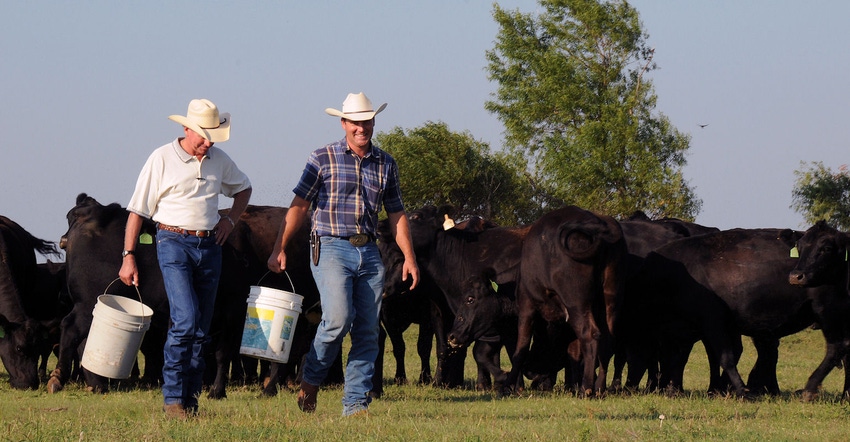Land access number-one challenge young farmers face.

America’s new generation of young farmers expect to overcome major barriers to their success in agriculture, including access to land, affordable health care and mounting student loan debt, but success will require deliberate policy change at all levels of government, according to the 2017 "National Young Farmer Survey."
The survey was conducted by the National Young Farmers Coalition (NYFC), in partnership with Dr. Kathleen Merrigan, executive director of sustainability at George Washington University and former U.S. deputy secretary of agriculture.
“The time is now for our country to help young farmers defy the odds, preserve farming as a livelihood and revitalize our nation’s rural economy,” said Lindsey Lusher Shute, executive director and co-founder of NYFC. “This report proves that there are thousands of young people ready to build new farms in the United States, but we’ve got to do our part and make sure that they will succeed.”
The survey, conducted with 94 partner organizations, collected data from 3,517 current, former and aspiring U.S. farmers under 40 years of age. In its report on the survey, NYFC noted that the top challenge cited by young farmers was land access, particularly finding and affording land on a farm income. It is also the main reason why farmers quit farming and why aspiring farmers haven’t yet started.
The survey illustrated a challenging economic picture for young farmers. Sixty-one percent of individual respondents reported needing another job to make ends meet, and fewer than half own all the acres they’re farming. Indicators tracked by the U.S. Department of Agriculture also suggest that trends in the agricultural economy are hitting young farmers especially hard. According to USDA chief economist Dr. Robert Johansson, young farmers and those who rent more of their land tend to be far more in debt relative to their assets, the report noted. In 2015, farmers under 35 years old had an average debt-to-asset ratio of 28%, compared to 16% for those ages 45-54 years and only 11.5% for those ages 55-64 years.
“Despite the challenges, young farmers are hopeful. The majority of young farmers said that they are making, or will eventually make, sufficient income in farming to meet their life goals,” the report noted.
NYFC reported that the young farmers surveyed are capitalizing on the demand for local food by selling directly to consumers and by growing a diversity of crops and livestock. The survey also indicated a generation of producers strongly committed to environmental stewardship, with 75% of current young farmers describing their practices as “sustainable” and 63% describing their farming as “organic,” although many of them have not sought certification.
Like their Millennial counterparts, young farmers surveyed by NYFC were highly educated and increasingly racially diverse, and despite challenges and relatively low income, the survey found high optimism: 63% of respondents said they are making or eventually would make sufficient income to meet their life goals.
The survey found that 72% of survey respondents grew vegetables, and 81% of respondents said they grew two or more types of products. While just 25% said livestock made up the highest percentage of their sales, many more are using animals to diversify their farms.
The survey found that 75% of survey respondents did not grow up on a farm, 69% had degrees beyond high school and 60% of respondents were women.
“Things are changing in American agriculture, and our perceptions and policies need to keep pace,” Merrigan said. “This survey reveals that it’s no longer 'Old MacDonald' of storybook fame. Rather, it’s Ms. MacDonald, a college graduate who didn’t grow up on the farm and considers her farming practices to be sustainable or organic.”
Considering these findings, NYFC called on lawmakers to enact a slate of policy reforms it calls the “Young Farmer Agenda,” which includes: addressing land access and affordability; helping young farmers manage student debt; increasing the skilled agricultural workforce; enabling farmers to invest in on-farm conservation; improving credit, savings and risk management opportunities for young farmers, and addressing racial inequity among farmers.
About the Author(s)
You May Also Like



.png?width=300&auto=webp&quality=80&disable=upscale)

